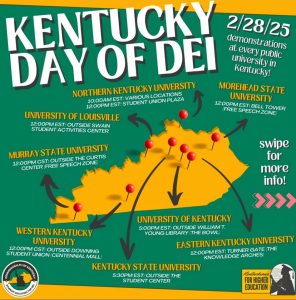How WKU students are getting a head start on their masters
March 30, 2020
With the cost of college on the rise, students look for ways they can take advantage of their time and money. For some students, they turn to WKU’s JUMP.
The Joint Undergraduate Masters Program, more commonly known as JUMP, allows students to pursue an undergraduate and graduate degree in approximately five years. WKU’s unique program started in 2010 with accounting. Now 10 years later, there are currently 24 programs offered, though one will be cut in the fall.
Kimber Morris, a senior from Portland, Tennessee, is in the organizational and corporate communication JUMP. Being in JUMP for Morris isn’t out of the ordinary. In high school, Morris was an overachiever and she decided to continue that trend in college.
“I learned that it was graduate classes, I could get my master’s degree a year early, I would be challenged, I would be working on papers and actually working with graduate professors at the same time while getting my undergraduate degree,” Morris said.
The program allows for graduate courses to count toward the undergraduate degree, either as an elective or as a substitute for a requirement. Another bonus is they can also be counted as honors courses.
With these courses, students are able to gain experience through research and papers. This experience can be monumental in post-graduate life. Students have something to show future employers to prove that they’re capable of doing challenging work.
Jason Polk, the program coordinator for geoscience’s JUMP, believes the experience students gain is especially beneficial. It allows the student to get more involved and to be exposed to different types of skills.
“A lot of our JUMP students can do more research, have more experiences and have time to do things like international research that’s hard to do in a traditional masters program because it’s such a short amount of time,” Polk said.
Since students will start experiencing research as an undergraduate, it helps them create a pathway into research and graduate work. Another benefit is students are able to earn their masters earlier than usual.
Colette Chelf, the associate director of the graduate school, believes this is crucial in today’s workforce. Being able to prepare students through gaining two credentials is something she is proud of and notes most disciplines, like accounting, require a masters degree.
“For our masters of accountancy, students are required to have the accounting degree to sit in on the certified public accountant exam, so it’s something they’re going to do already, but we want to encourage them to try to do it with us,” Chelf said.
A bonus for WKU is students participating in a JUMP are more likely to stay at WKU, helping keep retention high. While doing things like research, students create a link to the university and the department. This bond becomes an incentive for students to stay to finish out their research and complete the program.
If students realize JUMP isn’t for them or they want to go somewhere else for graduate school, nothing will count against them. Students can still graduate with a bachelors degree, and the courses used for both degrees will still be counted.
Though the thought of graduating with undergraduate and graduate degrees can be enticing, it isn’t for everyone. The courses students take are still graduate classes. They’re rigorous and sometimes demanding.
“They take a lot of reading and time to do field research,” Anne Ferrell, program coordinator for the folk studies JUMP said. “If students aren’t prepared for that, it can be a real challenge for them. The challenge of balancing undergraduate and graduate classes and thinking about the rigor between the two is something students may not think about.”
Despite the fact JUMP can be so beneficial for students, it isn’t well known on campus. Since students aren’t familiar with it, it can be difficult to recruit students to join.
Students like Natalie Stagoski, a junior from St. Louis, Missouri who just joined the business administration JUMP, are given a generic spiel. She heard about the program during a seminar at freshman registration. Stagoski said she wishes it had been better explained for her and how it applies differently to each student.
JUMP can be unique to each student, from how long the program will last for them to the courses they take. Polk emphasized students interested in JUMP should talk to their advisers in order to figure out these things and maximize their student experience.
The number of students a JUMP will accept varies, usually depending on how many students are interested. A group of faculty members within the department will come together to review an application. Faculty usually look for a high GPA, a major within the program and interest or experience in research.
Polk said doing a FUSE grant or an independent study project would be a sufficient example of research. These help faculty members understand and gauge the student’s level in order to determine they’d be a good fit for the program.
Features reporter Olivia Marshall can be reached at olivia.marshall688@topper.wku.edu. Follow Olivia on social media at @marshallolivia_.


















